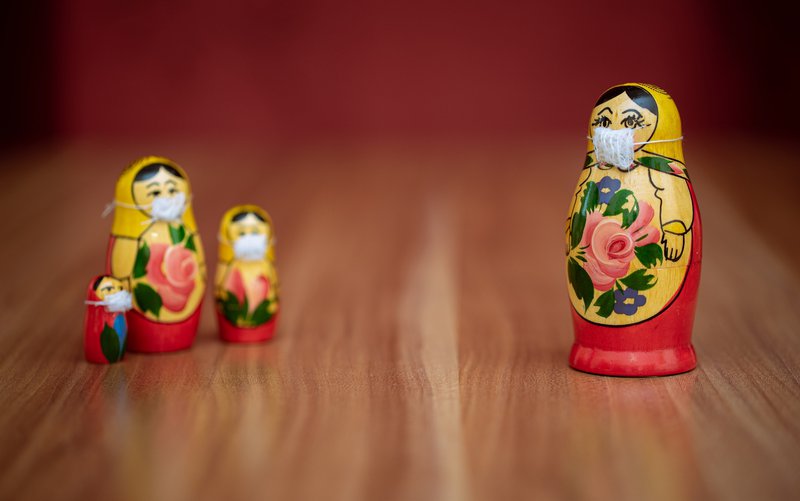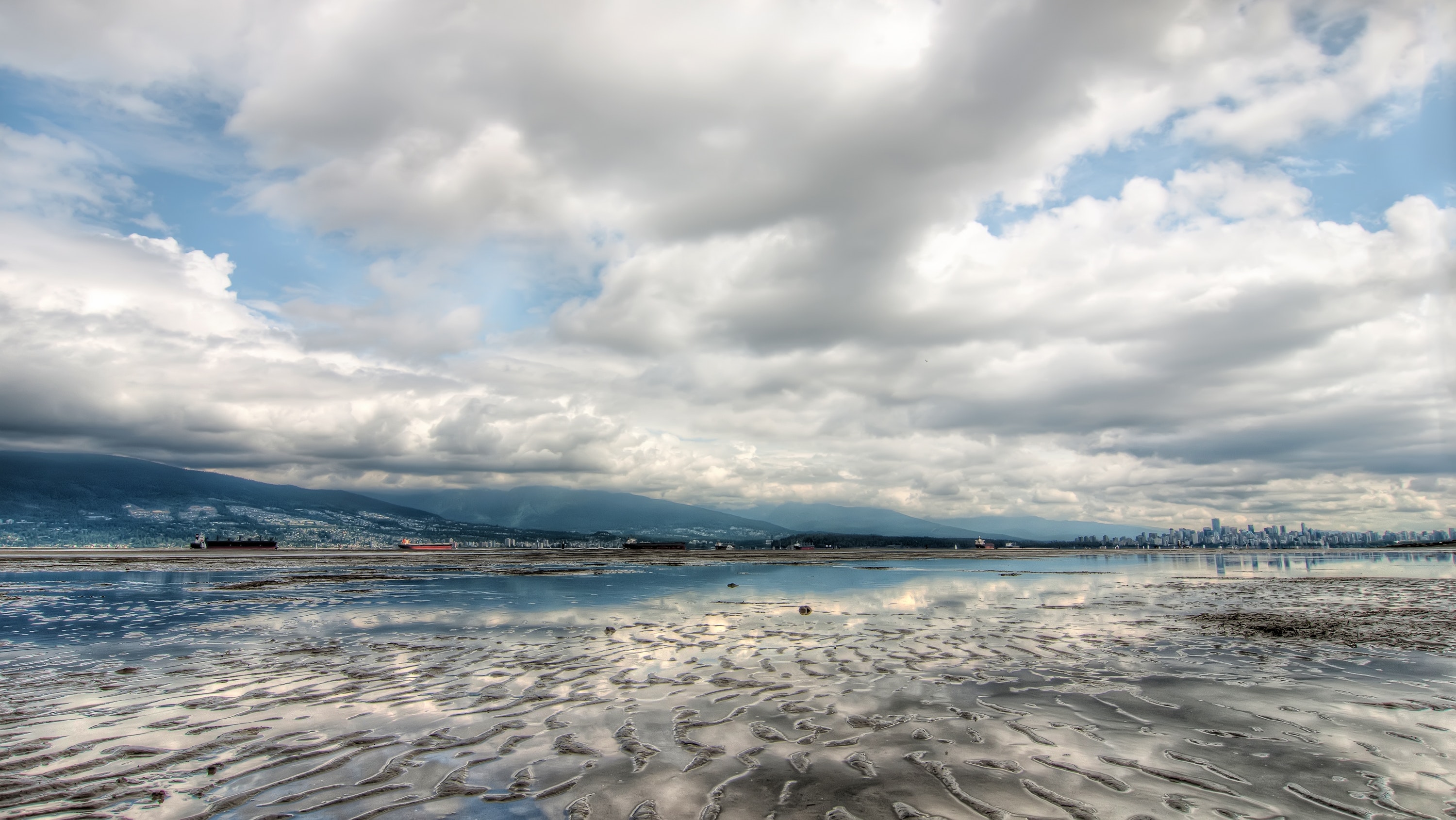Intermission: On wearing a mask during a pandemic

Before I start venting my frustration on people (mis)handling our response to the Covid-19 pandemic, just a very quick disclaimer: Yes, I usually write about climate science. But right now, there is too much to tell about the handling of the current pandemic to stay quiet... sorry to all readers exclusively interested in climate-related topics. But you will see at the end of this mini series that there are many similarities in how people respond to the Covid-19 and the climate crises. So there's something in it for all of you.
Yes, I am wearing a mask
Let's start with the basics: Wearing a mask to prevent the spread of Covid-19 has been established not only by the WHO, the RKI (Robert-Koch-Institut, as I am living in Germany) and basically all other institutions of health sciences in the world. Furthermore, I myself have been working in the field of immuno-informatics for some time so I have a basic understanding on how virus are spreading. Taking these points together lets me come me to an easy conclusion: I am wearing a mask. Wearing it in super markets, public transport, or when bringing my kids to school is not exactly fun... it is an inconvenience, but sure as not it is a just a minor inconvenience. Also, I am wearing a mask while performing physical therapy to get my left foot running again (yes, I am sweating on a bicycle ergometer wearing a mask on a regular basis). And finally, I recently wore a mask for eight hours while my wife was in labour. All of this was and some of it still is a bit inconvenient. But none if this was really a problem. On the contrary, I sometimes even have a good feeling wearing a mask because I know that I am giving some minor feeling of security to the people around me. These people include doctors, midwifes, teachers, or super market employees. All of them are people that I should care about, because I need them in my life (note that I am even leaving the philanthropic view point of not wanting to deliberately hurt others out of the equation here).

No, not everyone is wearing a mask
In contrast to this there are many people who refuse to wear masks. As far as I can see, you can group them in four general categories: Category 1 people know that masks are important, but they don't enjoy wearing them (well, who does?), so they secretly omit them or "forget" them at home or leave them on the chin or let their nose sticking out of the mask. To be fair, leaving the nose out of the mask makes breathing easier. Coincidentally, it also makes transmitting virus easier. So wearing a mask without covering the nose is only doing half of the job you are supposed to do. At best. And in case of the casual sneeze, your uncovered nose will take care that everyone around you is covered in whatever is coming out of you. So wearing the mask like that just won't do.
Category 2 people are not wearing masks or are wearing them the wrong way, simply because they don't understand what is going on and how virus are spreading. The best example are persons that wear masks, but pull them down when they start talking - just because talking is easier without a mask. Needless to say that this won't stop the spread either. Just for the sake of it, let me assure you that you can spread the virus especially when you are talking to someone. And simply not having understood how any of this works is not an excuse for behaving so poorly. Because by now everyone should have noticed that something is wrong in the world and everyone had the chance to gather information on how to behave correctly to not make the situation worse. TV, media, pictograms and instructions everywhere... you simply cannot say anymore you don't know how this works without looking like a tool.
I am also tempted to think that there are many people out there that do not wear masks to display how cool and relaxed they are. These Category 3 people like to see themselves solid as a rock in a sea full of panicking lemmings. Usually, they are sixteen year old guys in leather jackets, but it also works for people older than that who probably still picture themselves as sixteen year olds in leather jackets. Their usual comment on all Covid-related issues is: 'Don't you think this is all blown out of proportion? Look how everyone is overreacting, lol.' The only possible answer to this is: 'Overreacting? The scientific community, the medical community, and last but not least the community of morticians beg to differ'.

But let's come to the main threat: Category 4 people see the information circulated by all media and health institutions, but instead of following them for the good of everyone, they knowingly decide that they will simply not do it. Some still believe that this is just a flu. Others believe it is a big conspiracy by pharma industries to sell vaccines (if this is true, please speed up the process, big pharma). Many believe that their personal rights are being violated by the advice to wear masks (that's like saying wearing a seat belt in a car is stripping you from your rights to not wear a seat belt). Or maybe 5G is involved and the vaccines are used to implant chips that can be monitored via the new 5G towers. Although I feel stupid emphasising this: None of this is true. And it is plainly moronic to dismiss the massive amount of information available on the topic. If you are interested in the psychology of conspiracy theories and what people that believe in them have in common and how they can be confronted, have a look at The Conspiracy Handbook by Prof John Cook (George Mason University) and Prof Stephan Lewandowsky (University of Bristol). I can proudly say I helped with the German translation of the handbook. The behaviour of these people is anti-social, dangerous, and down-right stupid. Ironically, they feel like they are the only ones who are not stupid. But this is a tale for another day.
How to confront people that don't wear masks?
This is a very tough nut. I am a person that does not like public confrontations too much. Calling someone out, e.g. for not wearing a mask in public transport, is nothing that comes natural to me. Although I am completely sure to be in the right and to also have every right to call the person out. And despite the fact that I am equipped with enough knowledge to properly confront a science and/or Covid-denier... I rarely do it. Usually, I simply go away to bring a lot of space between me and the delinquent to save my own skin. Why am I sharing this embarrassing detail? Because I truly believe that many people think just the same way. And if people are reading that others are feeling the same way, this will make us all more self confident to confront people who behave anti-social. Because confronting them we must do.
The problem in confronting people is that you never know if you have a nut case in front of you. Most sane and sensible people wear masks. If they don't wear one, they probably belong into one of the four categories described above. But which category is it? Categories 1 and 2 would probably blush upon being called out and quickly instate the mask. Category 3 might scoff at you and maybe instate the mask whilst dropping a cool one-liner to not lose face (e.g. 'Wake up, sheeple!'). But what if it is a specimen of category 4? Then your day is probably fucked from here on. Because he (let's assume it's a man) is sure that all of us sheep who consume "mainstream media" and "mainstream science" (whatever that is) are completely stupid and deserve a piece of their mind. Or even their fist (yes, there are videos of physical confrontations in that very context). Every ensuing quarrel would not be won by the person with the best and most logic arguments, but by the person that is louder and more aggressive. I do not see myself winning that one anytime soon.
Fortunately, this is not the only battle to be fought. Confronting relatives or friends about differing stances on climate or Covid science is well inside my comfort zone. These discussions are usually much quieter and benevolent (yes, I said usually). And if relatives or friends tell me that doves are filled with electric circuits and are remotely controlled to surveil us, I can calmly grab my conspiracy theory handbook and remind myself of the following quotes:
"Approaches should be empathic and seek to build understanding with the other party. Because the goal is to develop the conspiracy theorist’s open-mindedness, communicators must lead by example"
"Conspiracy theorists perceive themselves as critical thinkers who are not fooled by an official account. This perception can be capitalized on by affirming the value of critical thinking but then redirect this approach towards a more critical analysis of the conspiracy theory"
"Aggressively deconstructing or ridiculing a conspiracy theory, or focusing on “winning” an argument, runs the risk of being automatically rejected. Note, however, that ridicule has been shown to work with general audiences"
(these quotes are accompanied by references to the underlying scientific studies; you can find them in the handbook)

Thanks for all the heart ache, but what now?
This article was mainly about people wearing or not wearing masks. Also a little bit about the classification and confrontation of non-maskers. But this is only one very small piece of the big Covid-19 puzzle. In the following article, I will dive deeper into the different political approaches to tackle the pandemic and the inherent problems. Partisanship, distrust, and anti-science sentiments have broken many governmental plans into pieces. Sounds familiar? If not, maybe the case of climate science rings a bell? I will have a closer look into this topic in the next blog post. Stay tuned!
Photo credits: Evgeni Tcherkasski, Adli Wahid, Jusdevoyage, zydeaosika




